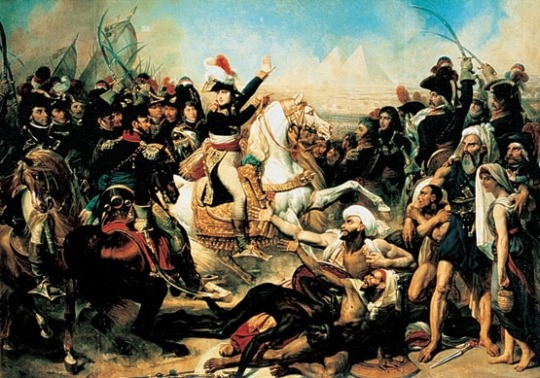#louis de bonald
Photo

Monarchy considers man in his ties with society; a republic considers man independently of his relations to society.
- Louis de Bonald
The only flag that is inclusive enough to include everyone equally irrespective of race, creed, or sexual orientation. And even republicans.
#de bonald#louis de bonald#quote#monarchy#constitutional monarchy#republicanism#society#british flag#union jack#pall mall#picadilly#london#coronation#king charles III
27 notes
·
View notes
Text
Louis de Bonald: Literature
Image via Wikipedia
“Literature is the language of society, as speech is the language of man.”
—Louis de Bonald, philosopher and politician (1754-1840).

View On WordPress
0 notes
Text
Lexember 2022, day 10
Il y a des gens qui ne savent pas perdre leur temps tout seul. Ils sont le fléau des gens occupés.-Louis de Bonald
Some people can’t waste time on their own. They’re the bane of the busy ones.
Yl i á edull genk nki en saven pa peder leirl tepp tót seil. Ulis son alull félál edull genk okupél.
/ɪl.i.au.ɛtʏtl.ɣɛŋ̊k.ŋ̊ki.ɛn.savɛn.pʰa.pʰɛtɛʁ.leiʁl.tʰɛʰp.tʰoutʰ.seil.ʏlis.sɔn.alʏtl.fjɛlaul.ɛtʏtl.ɣɛŋ̊k.ɔkʏpʰjɛl/
3SG.M there be.3SG people who NEG know.3SG NEG lose 3SG.NPL all alone 3NPL be.3SG.NPL bane of.NPL people occupy.3SG.NPL.PPRT
0 notes
Text

« Toute passion qui n’est pas celle de l’argent, des honneurs ou des plaisirs, s’appelle aujourd’hui fanatisme et exagération. »
Louis de Bonald, « Pensées sur divers sujets » (1817)
8 notes
·
View notes
Note
Thoughts on the place of Count Gobineu in particular and the French Legitimists in general in the history of fascism? Espescially interested in those deeply reactionary forces that were a pure defense of pre-modernity and the way that they relate to such a modern phenomenon as Fascism.
I don’t know that I would call them a ‘pure defense of pre-modernity’ since I’ve increasingly realized, as Roger Griffin puts it,
In a sense, then, every ideological and spiritual product of a society affected by modernisation cannot help but be a manifestation of modernity: they are not to be seen as ‘pro-’ or ‘anti-modern’, but as resulting from the interaction of specific forces of modernity with specific forms of traditional society within a unique and dynamically changing configuration of historical forces.
And especially Gobineau’s biological racism was hardly pre-modern. I get what you’re saying though, that his unabashed aristocratic elitism and royalism differs from fascism fundamentally; so does his pessimism about racial decline of course. In that sense he was vaguely similar to Spengler, both diagnosing syndromes of decadence in society that they thought were inexorable and could be at most managed or held off temporarily, for their intellectual descendants to go “Actually, through [eugenics, revolution, etc] all things are possible.” Gobineau’s monarchism and fusion of racial and class elitism could maybe be compared to proto- or quasi-fascists like List, Lanz von Liebenfels, and Evola, but again the pessimism thing: the latter three were all millenarian reactionary-revolutionaries aspiring to a new utopian world order.
Action française would I guess be the closest thing to a direct link between legitimist thought and the origins of fascism (well and there was a Carlist workers’ union in Spain that developed a fascist tendency) even though AF wasn’t formally legitimist. The maurrasistes are sometimes considered anti-modern reactionaries, and I sometimes present them that way to people because it’s simpler, but they especially drive home Griffin’s point and Stanley Payne has suggested the word ‘reactionary’ doesn’t really fit Action française because of the amount of modern social and political thought they inevitably incorporated, above all the ultra-nationalism which Maurras anachronistically projected back onto the ancien régime. In turn AF thought was partially anticipated by Louis de Bonald, who was ahead of his time but reflective of the fact that even shortly after the Revolution, Counter-Revolutionary thinkers had realized that the old order in the strictest sense was permanently lost.
In the injection of an updated corporatism and organic nationalism or proto-nationalism into traditionalist monarchism, these types remind me of Ivan Ilyin who was in much the same position, like de Bonald an aristocrat grappling with the destruction of the traditional social order by a revolution, in the world of the twentieth century rather than the nineteenth. Stephen Shenfield has a short discussion of Ilyin in Russian Fascism that I mostly like (note that Shenfield’s concept of modernity is basically a value judgment and by “premodern values” he just means illiberal ones):
Ilyin described fascism as “a complex and multi-sided phenomenon [that] arose as a healthy and necessary reaction to bolshevism, as a concentration of state-preserving forces on the right.” Other praiseworthy features of fascism were its patriotic feeling and its search for just social reforms. However, fascism was marred by six “deep and serious errors”—namely hostility to Christianity and to religion in general; totalitarianism; one-party monopoly, leading to corruption and demoralization; nationalist extremism, belligerent chauvinism, and a mania for national grandeur; a tendency toward state socialism; and “idolatrous caesarism, with its demogogy, slavishness, and despotism”.
The first of Ilyin’s objections does not serve to separate him from fascism in the generic sense, which, as was demonstrated in the last chapter, is compatible with a variety of religious orientations. Nevertheless, a person who rejects totalitarianism, chauvinism, and caesarism can hardly be considered a fascist. We might also note his reference to the traditionalist conservative regimes of Franco in Spain and Salazar in Portugal as positive alternatives to “fascism”. Ilyin sensed that he shared many of his premodern values with the fascists—hence his perception of them as basically well-intentioned people who had made unfortunate “errors”—but he could not bring himself to accept the new order.
8 notes
·
View notes
Text
Il n’y aura bientôt plus que l’opulence et la misère qui puissent vivre dans les grandes cités; la médiocrité, qui les sépare, en sera bannie par l’impossibilité d’y subsister décemment. Alors se fera le contact immédiat des deux extrêmes de l’état social, et il ne sera pas sans danger.
Louis de Bonald
4 notes
·
View notes
Photo

„Die Literatur ist der Ausdruck der Gesellschaft, wie das Wort der Ausdruck des Menschen ist.“ Louis-Gabriel-Ambroise de Bonald
Einen schönen Samstag wünsche ich, euch.
3 notes
·
View notes
Text
L'Homme et la Société (Louis de Bonald)
youtube
View On WordPress
0 notes
Text
Teoría de la sociología clásica
Fundación de la sociología en Francia

La sociología surge de una reacción de a la ilustración y nace de una respuesta a la revolución industrial y lo que desencadena, Los pensadores más influyentes de la fundación de la sociología en Francia son Charles Monstesquieu y Jean Jacques Rousseau. Una de las características de la sociología francesa es que fue indirecta y negativa.
La fundación de la sociología en Francia tuvo mucho influencia de la filosofía y la ciencia del siglo XVII.
La filosofía estaba relacionada con pensadores tales como René descartes, thomas hobbes, que buscaban lecturas mucho más racionales, pues los filósofos asociados con la ilustración tendían a rechazar las creencias antiguas y lo sistemas irrazonables. Louis de Bonald y Joseph de Maistre, adoptan la filosofía contrarrevolucionaria católica, donde se oponían a la ilustración y a la revolución francesa, ellos buscaban retomar los pensamientos de la Edad Media, donde la idea de Dios era lo primordial y por ende los individuos no pueden modificar la sociedad, ya que era una creación sagrada.
Dicho lo anterior la sociología francesa surge de una combinación de ideas a favor y en contra de la ilustración y las revoluciones.
Bonald impone una introducción a las ideas generales las cuales dictaba un valor positivo a los aspectos como la tradición, la religión y que eran importantes para la vida social, mostraban una mayor importancia hacia la sociedad y no hacia el individuo, pues la sociedad era la creadora del individuo, la familia eran la apreciación esencial para esta sociedad pues daban entornos de intimidad necesarios para los individuos.
Estas características reaccionarias hacia la ilustración son los cimientos de la teoría sociológica en Francia.

1 note
·
View note
Photo

Il n’y aura bientôt plus que l’opulence et la misère qui puissent vivre dans les grandes cités; la médiocrité, qui les sépare, en sera bannie par l’impossibilité d’y subsister décemment. Alors se fera le contact immédiat des deux extrêmes de l’état social, et il ne sera pas sans danger.
3 notes
·
View notes
Text
Una conducta desarreglada aguza el ingenio y falsea el juicio.
Louis de Bonald
11 notes
·
View notes
Photo

Monarchy considers man in his ties with society; a republic considers man independently of his relations to society.
- Louis de Bonald
#bonald#louis bonald#quote#monarchy#constitutional monarchy#britain#HM Queen Elizabeth II#elizabeth II#politics#society#republic#the ties that bind
24 notes
·
View notes
Photo

“Partout où il y a beaucoup de machines pour remplacer les hommes, il y aura beaucoup d’hommes qui ne seront que des machines.”
— Louis de Bonald, 1817
13 notes
·
View notes
Text

« Mais comme on a voulu se passer de religion et l’écarter de la société, il a bien fallu chercher un autre appui à la morale. On l’a cherché dans l’intérêt personnel et il en est résulté que pour un grand nombre l’intérêt personnel a été la seule morale. Cette opinion sophistique est une des grandes erreurs du siècle des Lumières. »
Louis de Bonald, Réflexions sur l’accord des dogmes de la religion avec la raison (1817-1818)
5 notes
·
View notes
Text
I think if people are going to obsess over Nazi antisemitism but laugh off Catholic antisemitism then they should probably take a closer look at the timeline (mostly lifted from Wikipedia) before assuming that these things are entirely unrelated:
1806: French Catholic philosopher Louis de Bonald publishes Sur les juifs, one of the most venomous screeds of its era, which combined anti-liberalism, a defense of a rural society, traditional Christian antisemitism, and the identification of Jews with bankers and finance capital.
1826: Cayetano Ripoll is the last victim of the Spanish inquisition, executed for allegedly teaching Deism to school children.
1840s: The popular counter-revolutionary Catholic journalist Louis Veuillot propagated Bonald's arguments against the Jewish "financial aristocracy" along with vicious attacks against the Talmud and the Jews as a "deicidal people" driven by hatred to "enslave" Christians.
1850: In Italy the Jesuit priest Antonio Bresciani's highly popular novel The Jew of Verona shaped religious anti-Semitism for decades, as did his work for La Civiltà Cattolica, which he helped launch. The Jesuits banned candidates "who are descended from the Jewish race unless it is clear that their father, grandfather, and great-grandfather have belonged to the Catholic Church" until 1946.
1858: Six year old Jewish boy Edgardo Mortara is kidnapped after allegations that he was secretly baptised by a servant as a baby and raised as a Catholic by Pope Pius IX despite the protestations of his family.
1869: Gougenot des Mousseaux's Le Juif, le judaïsme et la judaïsation des peuples chrétiens argued that Jews had manipulated the ideals of the Enlightenment to subvert and destroy Catholic France, and held them responsible for the French Revolution. He maintained that Jews engaged in ritual murder and conspired with Freemasons to control the world, and that the French Revolution was wrong to grant them equal rights. Pope Pius IX blessed the work and Nazi ideologue Alfred Rosenberg edited and published the first German edition in 1921.
1880s: French priests published twenty antisemitic books blaming France's ills on the Jews and urging the government to consign them back to the ghettos, expel them, or hang them from the gallows.
1889: Adolf Hitler is born.
1903: An antisemitic hoax, The Protocols of the Elders of Zion, is published in Russia.
1912: Catholic priest Ernest Jouin founded the Ligue Franc-Catholique. The league's journal, the Revue internationale des sociétés secrètes, was one of the two main antisemitic tribunes of the interwar period (along with the paper of the Action Française). Revue often published right-wing antisemitic canards from Russian, such as hoaxes about blood libel, and claims that Bolshevism was a Judeo-Masonic plot. Describing the Protocols, Jouin wrote: "From the triple viewpoint of race, of nationality, and of religion, the Jew has become the enemy of humanity." Pope Benedict XV made Jouin an Honorary Prelate. Pope Pius XI praised Jouin for "combating our mortal [Jewish] enemy" and appointed him to high papal office as a protonotary apostolic.
1920: Hitler becomes chief of propaganda for the newly renamed Nazi Party (NSDAP) and begins making antisemitic speeches.
1933: While meeting a Catholic bishop, Hitler declares: “I have been attacked because of my handling of the Jewish question. The Catholic Church considered the Jews pestilent for fifteen hundred years, put them in ghettos, etc., because it recognized the Jews for what they were. In the epoch of liberalism the danger was no longer recognized. I am moving back toward the time in which a fifteen-hundred-year-long tradition was implemented. I do not set race over religion, but I recognize the representatives of this race as pestilent for the state and for the Church, and perhaps I am thereby doing Christianity a great service by pushing them out of schools and public functions.”
now obviously Hitler was full of shit, but he chose his words based on what he thought his listener wanted to hear, and a Catholic bishop in 1933 was far more concerned about threats to the church than the threat of antisemitism that the church had stoked.
215 notes
·
View notes
Text
Monarchy considers man in his ties with society; a republic considers man independently of his relations to society.
- Louis de Bonald
2 notes
·
View notes